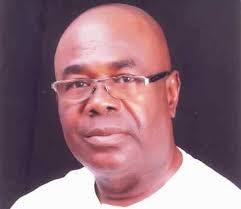632
By Asma”u Ahmad
The Chairman of the National Population Commission (NPopC), Chief Eze Duruiheoma, has said that effective management of the country’s population for development planning would be realised through accurate and reliable demographic data.
Duruiheoma, represented by Mr Benedict Ukpong, the Federal Commissioner, Akwa Ibom, said this on Thursday at the opening of the training for fieldwork functionaries for 2018 Nigeria Demographic Health Survey (NDHS) at Saminaka, Kaduna State.
Newsmen report that the workshop marks the commencement of the data collection from August 15 through December 15. According to him, the 2018 NDHS is part of the world wide surveys conducted periodically in countries.
He noted that the 2018 NDHS would be the sixth survey to be conducted in Nigeria since 1990, saying that the national sample survey was designed to provide data for monitoring the population as well as health situation in the country.
He also mentioned that the 2018 NDHS would complement existing demographic data in providing relevant, detailed and up-to-date information for planning purposes.
According to him, it will also produce the necessary dataset that will make positive contributions to the change agenda and Economic Recovery Growth Programme (ERGP) of the present administration as it relates to healthcare delivery, human capital development and SDGs achievement.
Duruiheoma explained that the specific objective for the survey was to provide up-to-date information and reliable estimates of fertility levels, preferences, awareness and use of family planning methods.
He added that it would help with the information on breastfeeding practices, nutritional status of mothers and young children, early childhood mortality and maternal and child health.
Besides, the chairman said that it would help in knowing the knowledge and behaviour regarding HIV/AIDS, Sexually Transmitted Infections (STIs), female genital cutting, fistula and domestic violence.
He further said that the 2018 NDHS would help in providing estimate of sickle cell disease, as well as anaemia and malaria prevalence among children age 6-59 months and adults.
He stated that listing of households had been carried in each of the 1,400 selected Enumeration Areas (EAs) with a representative sample of approximately 42,000 households selected for the survey.
Duruiheoma said that one third of 14,000 households were selected for malaria, anaemia and genotype testing for children 6-59 months. He also said that all women 15-49 and men 15-59 who were permanent residents of the selected households or visitors who stayed in the household the night before the survey would be eligible to be interviewed.
Duruiheoma, therefore, appealed to Nigerians to cooperate with the interviewers and assured of total confidentiality on information provided by the respondents.
He thanked development partners, including USAID, DFID, BMGF and ICF International, for their consistent support to the conduct of NDHS in Nigeria.
The Minister of Health, Prof. Issac Adewole, noted that whatever information NPopC generated at the end of the survey would be a reference point for the ministry and international communities.
Represented by Dr Emmanuel Meribole, Director, Planning and Research in the Federal Ministry of Health, Adewole enjoined the field workers to obey the procedures of collecting data. He described the survey as a national and international assignment.





